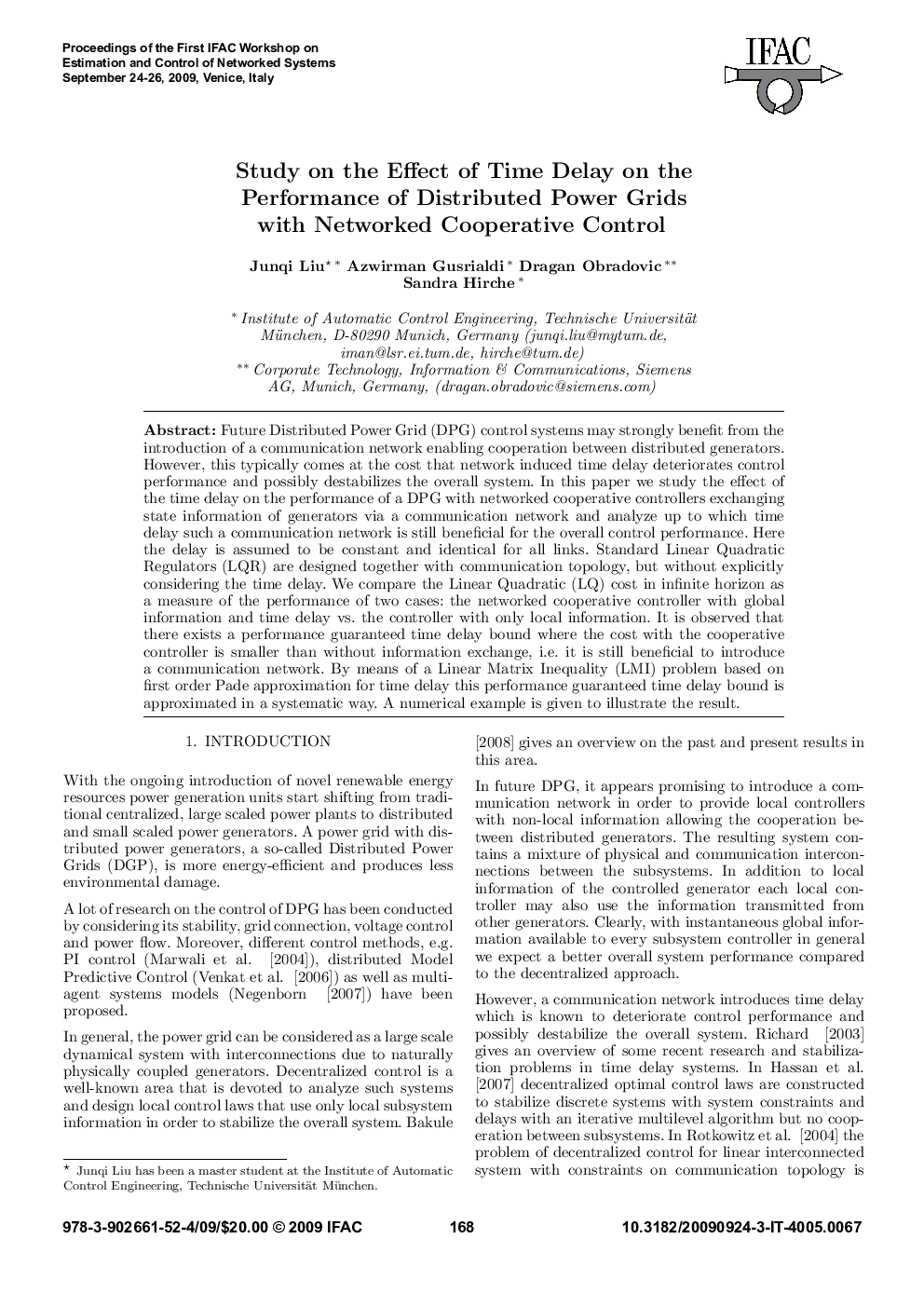| Article ID | Journal | Published Year | Pages | File Type |
|---|---|---|---|---|
| 717846 | IFAC Proceedings Volumes | 2009 | 6 Pages |
Future Distributed Power Grid (DPG) control systems may strongly benefit from the introduction of a communication network enabling cooperation between distributed generators. However, this typically comes at the cost that network induced time delay deteriorates control performance and possibly destabilizes the overall system. In this paper we study the effect of the time delay on the performance of a DPG with networked cooperative controllers exchanging state information of generators via a communication network and analyze up to which time delay such a communication network is still beneficial for the overall control performance. Here the delay is assumed to be constant and identical for all links. Standard Linear Quadratic Regulators (LQR) are designed together with communication topology, but without explicitly considering the time delay. We compare the Linear Quadratic (LQ) cost in infinite horizon as a measure of the performance of two cases: the networked cooperative controller with global information and time delay vs. the controller with only local information. It is observed that there exists a performance guaranteed time delay bound where the cost with the cooperative controller is smaller than without information exchange, i.e. it is still beneficial to introduce a communication network. By means of a Linear Matrix Inequality (LMI) problem based on first order Pade approximation for time delay this performance guaranteed time delay bound is approximated in a systematic way. A numerical example is given to illustrate the result.
